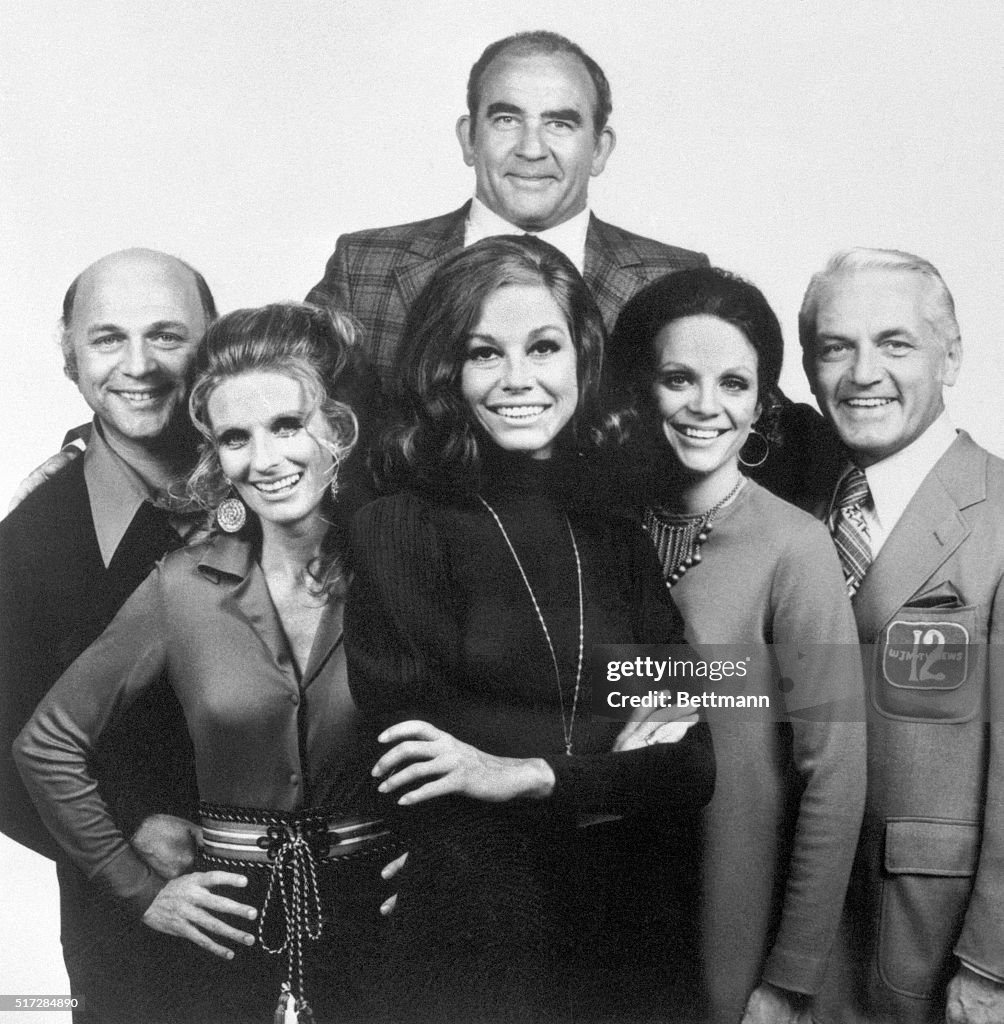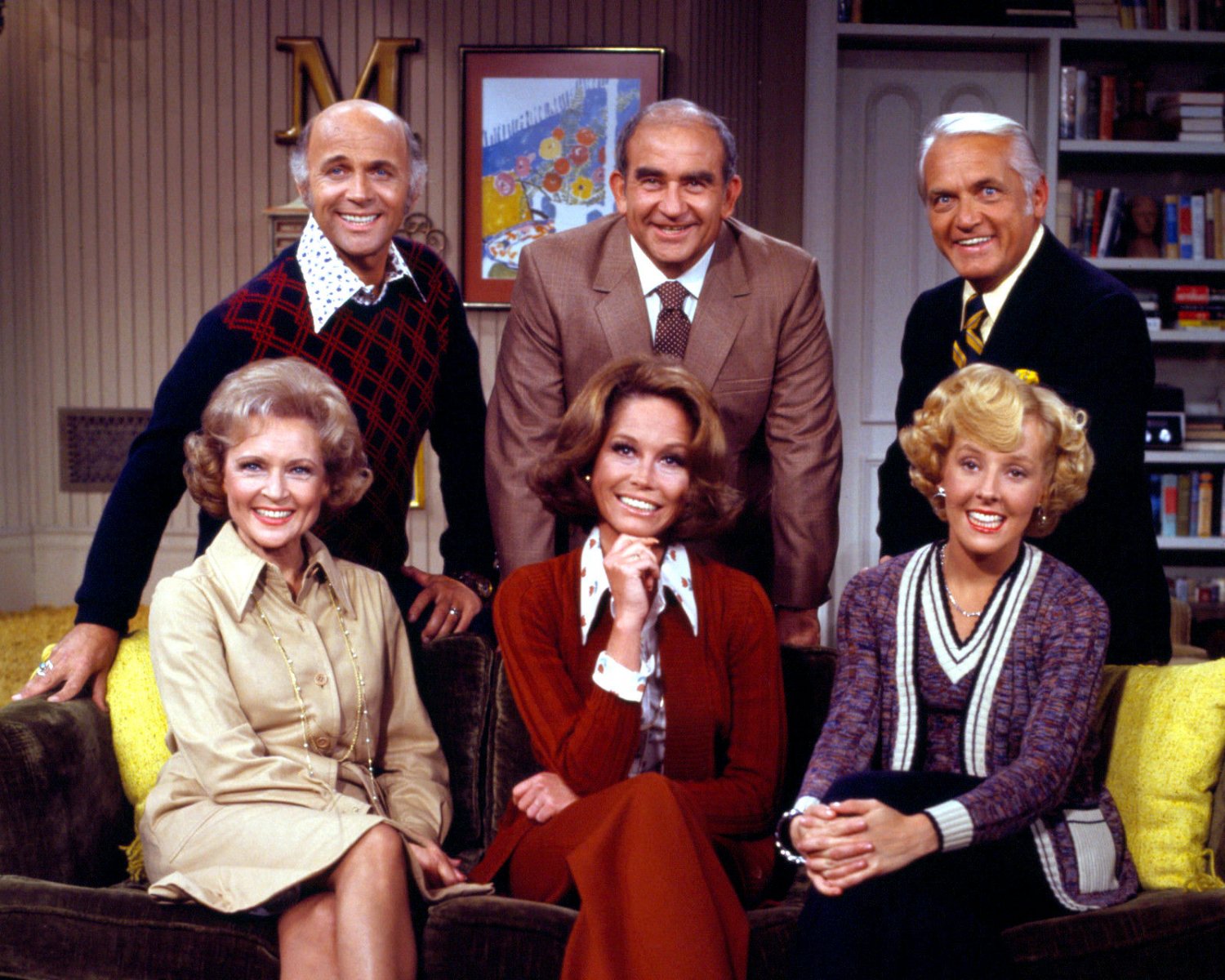Could a single, independent woman truly break through the glass ceiling of 1970s television? "The Mary Tyler Moore Show" not only proved it was possible, but revolutionized the landscape of sitcoms, paving the way for countless female-led narratives that followed.
The iconic sitcom, which graced the airwaves of CBS from 1970 to 1977, wasn't just a show; it was a cultural touchstone. It offered a refreshingly modern perspective, showcasing the life of Mary Richards, a single woman navigating the complexities of her career and personal life in Minneapolis. The shows groundbreaking premise, centering on an independent womans journey, resonated deeply with audiences and critics alike, earning it a place in television history.
The show, which originally aired on CBS, was a testament to the power of strong storytelling and exceptional talent. The series was lauded for its realistic characters, believable story arcs, and its willingness to tackle social issues with wit and grace. Its impact is still felt today, with many considering it a precursor to later television hits that also featured independent, career-driven women. "Mary Richards walked so Carrie Bradshaw could run," a statement that perfectly encapsulates the show's groundbreaking contribution.
The year 2021 marked a particularly poignant moment for the show's legacy, as many of the key individuals behind its creation and success passed away, underscoring the enduring power of the human connection the series fostered. The passing of actors like Cloris Leachman, who played Mary's quirky neighbor Phyllis Lindstrom, along with other key cast members and collaborators, served as a reminder of the talent that brought the show to life. Then, the news of John Amos's death in August 2024 further solidified the end of an era, leaving no original cast member alive.
Here's a closer look at some of the key individuals who shaped the shows success:
| Actor/Character | Character Description | Actor's Career Highlights | Notable Awards | Reference |
|---|---|---|---|---|
| Mary Tyler Moore as Mary Richards | The independent, career-driven associate producer at WJM-TV in Minneapolis. | Iconic actress, known for her charm and comedic timing; also starred in "The Dick Van Dyke Show." | Multiple Emmy Awards, Golden Globe Award. | IMDB |
| Edward Asner as Lou Grant | The gruff but lovable news director at WJM-TV. | A celebrated actor with a long and distinguished career in film and television. | Multiple Emmy Awards. | IMDB |
| Valerie Harper as Rhoda Morgenstern | Mary's best friend and neighbor. | Known for her warm personality and comedic prowess; later starred in her own spin-off, "Rhoda." | Multiple Emmy and Golden Globe Awards. | IMDB |
| Gavin MacLeod as Murray Slaughter | The head writer at WJM-TV, and a close friend and confidant to Mary and the others. | Character actor with a long career in television. | Nominated for Emmy Awards. | IMDB |
| Cloris Leachman as Phyllis Lindstrom | Mary's quirky and often overbearing neighbor. | Eminent actress and comedian with a versatile career in film and television. | Multiple Emmy Awards, Academy Award. | IMDB |
| Ted Knight as Ted Baxter | The vain and somewhat clueless news anchor at WJM-TV. | Known for his comedic timing; a staple of the show. | Multiple Emmy Awards. | IMDB |
The show's impact extended beyond individual performances. The writing and direction were equally crucial, with a team of talented individuals shaping the narrative and visual style of the series. The stories of a young woman's life, and her friends both at home and at work, became the foundation of a television revolution.
The ensemble cast, including actors like Gavin MacLeod, who played the head writer Murray Slaughter, and Ted Knight, as the often clueless news anchor Ted Baxter, provided a perfect counterpoint to Mary's character. Their interactions, both at the workplace and in the personal lives of the characters, are what gave "The Mary Tyler Moore Show" its depth. The supporting characters were not merely foils for Mary, they were well-developed individuals with their own struggles, triumphs, and quirks.
The show was also noted for its ability to tackle complex themes, such as gender roles, workplace dynamics, and the search for personal fulfillment. These themes, which were considered progressive for their time, resonated with viewers, making the show not only entertaining but also thought-provoking. The show's writers masterfully crafted storylines that allowed the characters to grow and evolve, making them relatable to a wide range of audiences.
Norman Campbell directed one episode of the Mary Tyler Moore Show. The show was recognized and honored at the Emmys for its outstanding achievements.
The sitcoms success also birthed spin-offs. The most notable of these was "Rhoda", starring Valerie Harper, and "Phyllis", featuring Cloris Leachman. These spin-offs demonstrate the strength of the characters and the enduring appeal of the show's universe.
The success of "The Mary Tyler Moore Show" was built on a foundation of strong writing, direction, and acting. Its ability to balance humor with more serious themes, along with its groundbreaking portrayal of a single, independent woman, made it a landmark achievement in television history. The show's legacy can be felt in the many shows that followed, particularly those featuring women at the forefront of their own narratives.
The show's influence on subsequent television programs is undeniable. It set a new standard for sitcoms, proving that intelligent writing, well-developed characters, and a commitment to real-world themes could be a recipe for success. Shows that came after this one, such as "Sex and the City", "Murphy Brown", and countless others, owe a debt of gratitude to "The Mary Tyler Moore Show" for its pioneering spirit.
Beyond the main cast, the show also featured appearances from various actors who added depth to the storylines. John Amos, who played weatherman Gordy in the early seasons, also added his distinctive charm to the show. In August 2024, with the death of John Amos, the show completed a very solemn cycle, as every major cast member is now deceased.
The enduring popularity of "The Mary Tyler Moore Show" can also be attributed to its focus on human connections. The characters formed deep bonds with each other. Their relationships, both at work and at home, were the heart of the show, making it relatable to viewers who found themselves drawn into their lives. Whether it was Mary's close friendship with Rhoda, or the quirky dynamics among the WJM-TV news team, these relationships became a core of the show.
The show continues to be celebrated for its impact on television, showcasing that stories centered on women could capture the hearts and minds of audiences across the country. It was a show ahead of its time, and its legacy remains as strong as ever.
The shows consistent glowing reviews and high ratings during its original run speak to its quality and enduring appeal. It wasnt just a sitcom; it was a cultural phenomenon that redefined what was possible on television.
The show itself was a launching pad for several actors. Mary Tyler Moore returned to network television after the triumph of her sitcom "The Mary Tyler Moore Show" from 1970 to 1977, after which she hosted The Mary Tyler Moore Hour, an american variety show which aired in 1979.
Fans often wonder what became of the cast members, and their accomplishments serve as a testament to the enduring quality of the show. As the show's popularity grew, many began to wonder what happened to the stars of the beloved sitcom that ran from 1970 to 1977 and won 29 emmys. The shows stars, with their careers, marriages, and awards, left behind an immense legacy.
The shows success also led to the creation of other shows. Phyllis is an American sitcom television series that aired on CBS from September 8, 1975, to March 13, 1977. The show was created mainly by Ed. Weinberger and Stan Daniels, and it was the second spinoff of the Mary Tyler Moore Show (the first being Rhoda).
The shows humor, heart, and groundbreaking approach to storytelling cemented its place in television history. It continues to be a source of inspiration for aspiring actors, writers, and creators, solidifying its status as a truly beloved classic.


